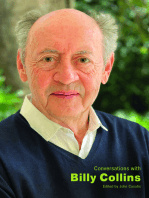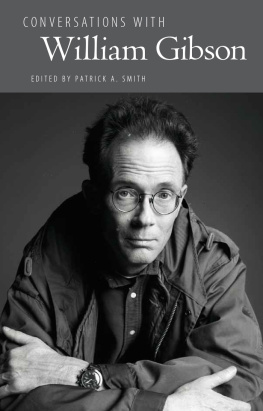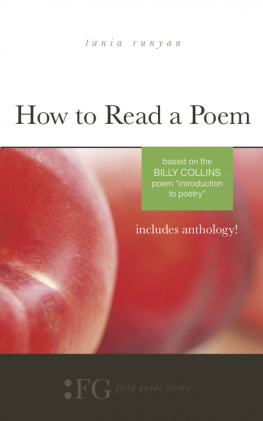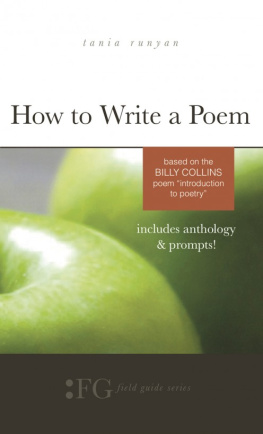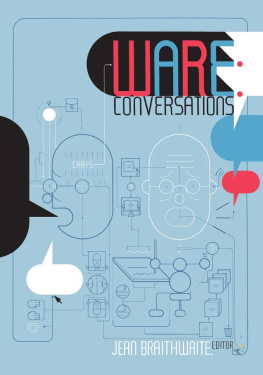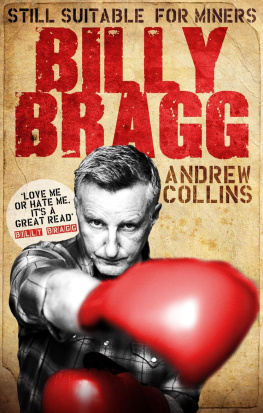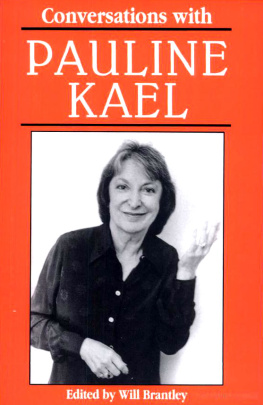University Press of Mississippi - Conversations with Billy Collins
Here you can read online University Press of Mississippi - Conversations with Billy Collins full text of the book (entire story) in english for free. Download pdf and epub, get meaning, cover and reviews about this ebook. genre: Art. Description of the work, (preface) as well as reviews are available. Best literature library LitArk.com created for fans of good reading and offers a wide selection of genres:
Romance novel
Science fiction
Adventure
Detective
Science
History
Home and family
Prose
Art
Politics
Computer
Non-fiction
Religion
Business
Children
Humor
Choose a favorite category and find really read worthwhile books. Enjoy immersion in the world of imagination, feel the emotions of the characters or learn something new for yourself, make an fascinating discovery.
- Book:Conversations with Billy Collins
- Author:
- Genre:
- Rating:4 / 5
- Favourites:Add to favourites
- Your mark:
- 80
- 1
- 2
- 3
- 4
- 5
Conversations with Billy Collins: summary, description and annotation
We offer to read an annotation, description, summary or preface (depends on what the author of the book "Conversations with Billy Collins" wrote himself). If you haven't found the necessary information about the book — write in the comments, we will try to find it.
Conversations with Billy Collins — read online for free the complete book (whole text) full work
Below is the text of the book, divided by pages. System saving the place of the last page read, allows you to conveniently read the book "Conversations with Billy Collins" online for free, without having to search again every time where you left off. Put a bookmark, and you can go to the page where you finished reading at any time.
Font size:
Interval:
Bookmark:
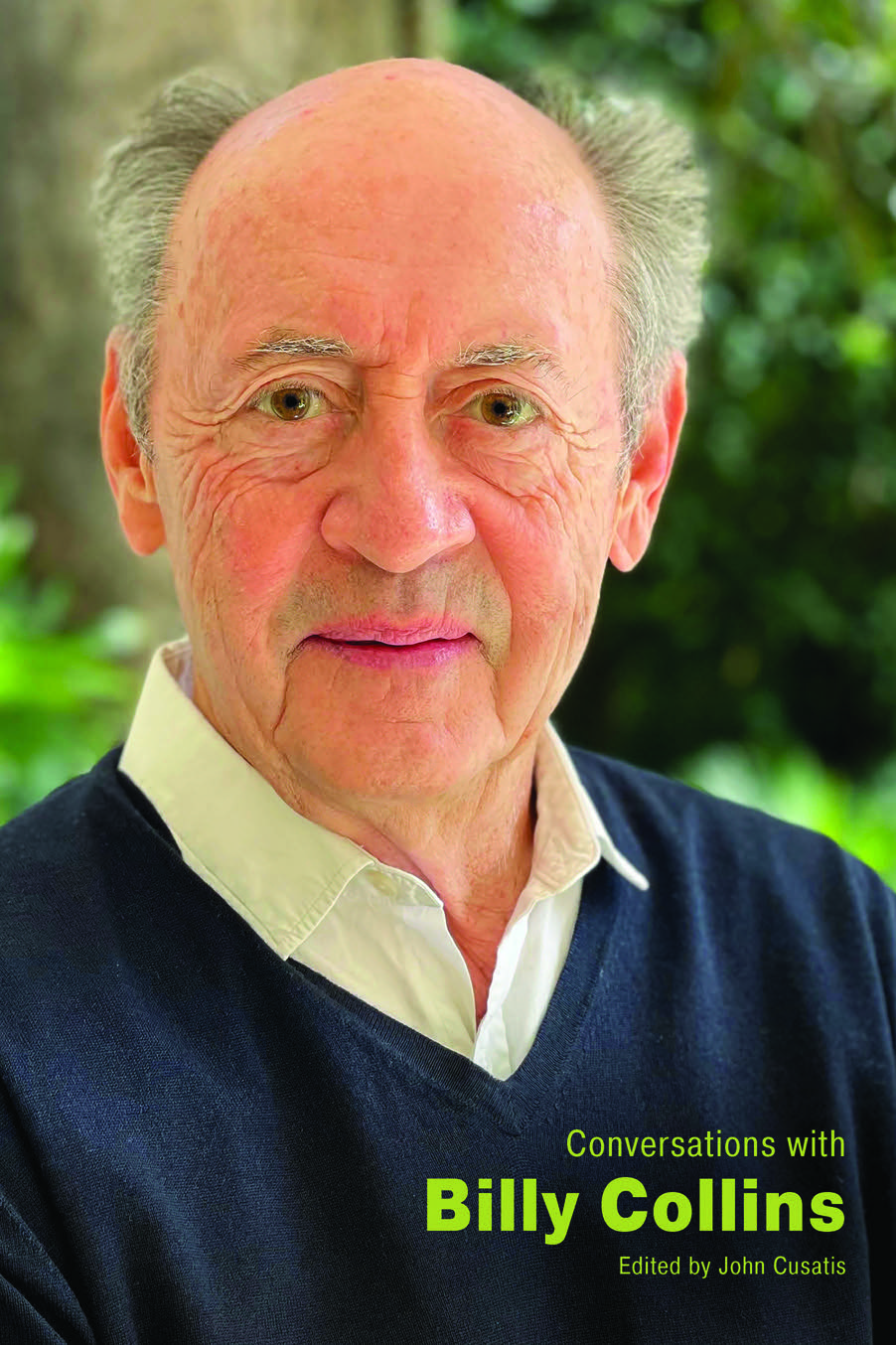
Conversations with Billy Collins
Literary Conversations Series
Monika Gehlawat
General Editor
Conversations with Billy Collins
Edited by John Cusatis
University Press of Mississippi / Jackson
The University Press of Mississippi is the scholarly publishing agency of the Mississippi Institutions of Higher Learning: Alcorn State University, Delta State University, Jackson State University, Mississippi State University, Mississippi University for Women, Mississippi Valley State University, University of Mississippi, and University of Southern Mississippi.
www.upress.state.ms.us
The University Press of Mississippi is a member of the Association of University Presses.
Several poems appear in the text.
Taylor, Henry. Paradelle: Nocturne de la Ville, from The Paradelle: An Anthology.
Copyright 2005 by Theresa M. Welford. Reprinted with the permission of Red Hen Press and Theresa M. Welford.
Billy Collins, Etymology from The Apple That Astonished Paris. Copyright 1988, 1996 by Billy Collins. Reprinted with the permission of The Permissions Company, LLC on behalf of the University of Arkansas Press, uapress.com
Billy Collins, Candle Hat from Questions about Angels. Copyright 1991 by Billy Collins. Reprinted with the permission of University of Pittsburgh Press.
Billy Collins, The Start, Nurse, and Comparisons. Billy Collins. Printed by permission.
Copyright 2022 by University Press of Mississippi
All rights reserved
Manufactured in the United States of America
First printing 2022
Library of Congress Cataloging-in-Publication Data
Names: Cusatis, John, editor.
Title: Conversations with Billy Collins / John Cusatis.
Other titles: Literary conversations series.
Description: Jackson : University Press of Mississippi, 2022. | Series: Literary conversations series | Includes index.
Identifiers: LCCN 2021062380 (print) | LCCN 2021062381 (ebook) | ISBN 9781496840660 (hardback) | ISBN 9781496840677 (trade paperback) | ISBN 9781496840691 (epub) | ISBN 9781496840684 (epub) | ISBN 9781496840714 (pdf) | ISBN 9781496840707 (pdf)
Subjects: LCSH: Collins, BillyInterviews. | Poets, American20th century Interviews. | Poets, American21st centuryInterviews.
Classification: LCC PS3553.O47478 Z46 2022 (print) | LCC PS3553.O47478 (ebook) | DDC 811/.54 [B]dc23/eng/20220128
LC record available at https://lccn.loc.gov/2021062380
LC ebook record available at https://lccn.loc.gov/2021062381
British Library Cataloging-in-Publication Data available
Pokerface. Pasadena, California: Kenmore Press, 1977.
Video Poems. Long Beach, California: Applezaba Press, 1980.
The Apple That Astonished Paris. Fayetteville: University of Arkansas Press, 1988.
Questions about Angels. New York: Quill / William Morrow, 1991; University of Pittsburgh Press, 1991.
The Art of Drowning. Pittsburgh: University of Pittsburgh Press, 1995.
Picnic, Lightning. Pittsburgh: University of Pittsburgh Press, 1998; London: Eurospan, 2003.
Taking off Emily Dickinsons Clothes: Selected Poems. London: Picador, 2000.
Sailing Alone around the Room: New and Selected Poems. New York: Random House, 2001.
Nine Horses. New York: Random House, 2002; London: Picador, 2003.
The Trouble with Poetry and Other Poems. New York: Random House, 2005; London: Picador, 2006.
She Was Just Seventeen. Lincoln, Illinois: Modern Haiku Press, 2006.
Ballistics. New York: Random House, 2008. London: Picador, 2009.
Horoscopes for the Dead. New York: Random House 2011. London: Picador, 2011.
Aimless Love. New York: Random House 2013. London: Picador, 2013.
The Rain in Portugal. New York: Random House, 2016; London: Picador, 2017.
Whale Day. New York: Random House, 2020; London, Picador, 2020.
Poetry 180: A Turning Back to Poetry. New York: Random House, 2003.
180 More: Extraordinary Poems for Every Day. New York: Random House, 2005.
The Best American Poetry 2006, New York: Scribner Poetry, 2006.
Bright Wings: An Illustrated Anthology of Poems about Birds. New York: Columbia University Press, 2009.
Voyage. Piermont, New Hampshire: Bunker Hill Publishing, 2014.
Terry Gross / 1998
Alletha Saunders / 2001
George Plimpton / 2001
Henry Taylor / 2001
Grace Cavalieri / 2001
Dave Weich / 2004
Joel Whitney / 2006
Adam Johnston / 2007
Arlo Haskell / 2009
Charleston School of the Arts / 2010
Margaret Renkl / 2010
Andy Kuhn / 2014
Daniel Menaker / 2014
Craig Barnes / 2016
Diane Rehm / 2016
John Cusatis / 2016
Anthony Borruso / 2018
Bob Hecht / 2019
Charleston School of the Arts / 2019
Diane Rehm / 2020
John Cusatis / 2021
In his 2016 interview with Billy Collins, Princeton Theological Seminary president Craig Barnes begins, We live in a day that values science and technology and big data. Why do we need poetry? Collins responds, Well, because of those things, to which the audience reacts with resounding applause. Poetry is little data, or a datum, he continues; it asks us to tap the brakes, slow down, to look at the world one datum at a timelike we did as children. And as Collinss literary heroes, the English Romantics, did. Wordsworth said, The child is father of the man, Collins told a group of AP English students in 2019, Its important to keep your child alive inside of you.
Artistspoets, musicians, dancers, whateverare people who have not let the child inside wither away, Collins explained to the students. All children are basically artists in a very unconscious and unselfconscious way. Adolescence, he says, ushers in self-consciousness and inhibits the spontaneity, candor, and attentiveness to the world one associates with children. Another culprit, his work implies, is formal education. In one of the earliest of his ninety-two poems that have appeared in Poetry, First Reader, he celebrates the initial joy of learning to read, discovering the infinite, clicking, / permutations of the alphabets small and capital letters. He recalls his early Dick and Jane reader: It was always Saturday and he and she / were always pointing at something and shouting, Look! But he concludes by lamenting the effect of the rigid, authoritarian atmosphere of the classroom: Alphabetical ourselves in the rows of classroom desks, / we were forgetting how to look, learning how to read.
In a much earlier poem, Instructions to the Artist, published in The Paris Review in the fall of 1977 and only slightly reworked for inclusion in Collinss second major book, Questions about Angels, where First Reader also appeared, he applauds childhoods creative impulse: Never be ashamed of kindergarten / It is the alphabets only temple. But somewhere in a childs education, Collins suggests, this temple is desecrated, and language, along with its most consecrated form of expression, poetry, loses its allure. He explains to Margaret Renkl in 2010, Children are delighted and astounded to discover at some point in their life that the thing that they use to eat their cereal with sounds almost exactly like that big white thing in the sky at nightmoon-spoon. It feels good on their lips and it connects these two wildly different things, and thats one of the very primal pleasures of poetry. Unfortunately, he explains to Renkl, boys and girls often have the natural pleasures of poetry beaten out of them by the time they get out of high school. Two reasons why: forceful emphasis on interpretation and using poems that are very datedpoems that were written a hundred years ago. If it hadnt been for his discovery of the Beat poets during his Catholic school education, Collins stated in our 2016 interview, he too might have been denied the primal pleasure poetry affords readers. Poets such as Allen Ginsberg, Gregory Corso, and Lawrence Ferlinghetti, he said, formed a revolutionary disruption of the manners of the traditional poetry we were being taught (by priests and brothers, I might add).
Next pageFont size:
Interval:
Bookmark:
Similar books «Conversations with Billy Collins»
Look at similar books to Conversations with Billy Collins. We have selected literature similar in name and meaning in the hope of providing readers with more options to find new, interesting, not yet read works.
Discussion, reviews of the book Conversations with Billy Collins and just readers' own opinions. Leave your comments, write what you think about the work, its meaning or the main characters. Specify what exactly you liked and what you didn't like, and why you think so.

